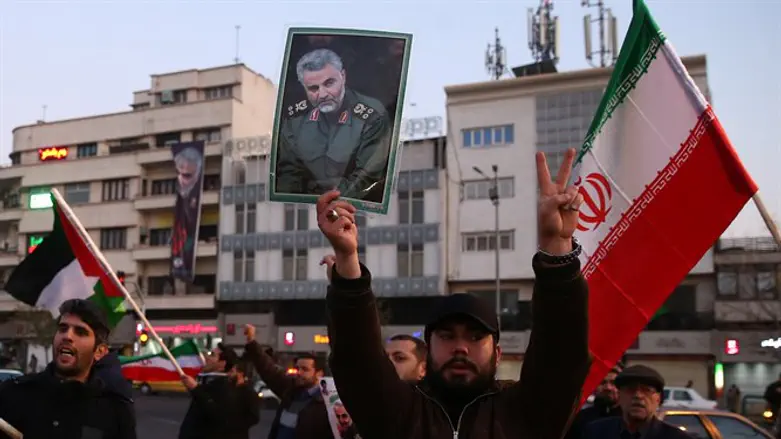
Why has the military escalation between pro-Iranian militias and the US come back to the forefront in this time? Why did President Joe Biden order heavy military strikes in response to attacks by Popular Mobilization factions? Does the escalation reflect the atmosphere of failed negotiations in Vienna?
Or is this another showdown between the Biden administration and the Iranian mullah regime in a new light, following the election of Raisi as Hassan Rouhani’s successor?
These and other questions are currently on the minds of Iranian observers after US fighter jets launched several raids on Iraqi Popular Mobilization factions on the Syrian-Iraqi border. This was in response to attacks by Iranian marches on US facilities in Iraq.
Some argue that the US attacks violate Iraqi sovereignty and put the Iraqi government in a very critical position internally. They increase pressure from pro-Iranian currents and militias to implement the Iraqi parliament’s decision to expel US forces from Iraq.
But an objective reading of what happened says that the mullahs’ regime provoked the Biden administration. They tested the limits of its power by inspiring one of their armed arms in Iraq to carry out an attack on buildings under the control of US forces in Iraq.
The mullahs likely planned to attack US forces and attract a US response that would further confuse the Iraqi scene to achieve several objectives.
-The first is an attempt to send a message to Washington that a new phase has begun in Iran by electing Ibrahim Raisi as president to succeed Rouhani before he even officially takes office.
-The second is to abort the Iraqi government’s attempts at rapprochement with its Arab environment after Egyptian President Abdel Fattah Al Sisi visited Baghdad to attend an Iraq-Jordan-Egypt summit. The US side may have been expecting Iranian provocations.
So the decision to respond militarily was made quickly to regain the advantage and confirm American deterrence. Some lawmakers even expressed concern about committing US forces to a new war in Iraq without Congress’ approval.
President Biden, who has prioritized ending US involvement in conflict zones, faces a new crisis in Iraq. He must convince the American public that what is happening is not a war in the conventional sense, but sporadic hostilities to deter pro-Iranian militias from launching new attacks.
US experts warn that a slowdown in the resumption of the initiative and deterrence could result in casualties among US troops in Iraq.
The Biden administration’s dilemma in Iraq and Syria is that pro-Iranian militias are now using drones in their operations, a show of force of sorts and a blow to American prestige. At the same time, some members of Congress refuse to address these militias for fear of widening the battlefield and being distracted from the fight against Daesh.
In any case, the exchange of strikes between pro-Iranian militias and US forces can be said to be inseparable from the atmosphere of the Vienna negotiations. One might even say that it reflects it, or at least is closely related to what is happening in these negotiations.
All indications are that the sixth round ended with agreements on secondary technical issues. The major points of contention can await political decisions by Iranian and American leaders.
“It’s time to make decisions,” said Iran’s chief negotiator Abbas Araghchi, who stated that enough negotiations have taken place on some outstanding issues. In this context, the White House’s position may be sensitive.
A decision to completely lift sanctions against the mullahs’ regime puts the US administration in a difficult confrontation with its opponents at home, as well as with the Israeli ally.
This decision is a free gift to the mullahs.
The latter will emerge with a declaration of victory and the success of their lobbying strategies to force the US to lift the harsh sanctions imposed by former President Donald Trump. Ultimately, what is happening in Syria and Iraq between Iran and the US is an echo of what is happening in Vienna.
The military escalation can only show Iran’s desire to maximize pressure on Washington. The US is well aware that bowing to this pressure puts the Biden administration in a difficult and complex position.
It makes negotiation with the mullahs on issues other than the nuclear program, such as the missile program and regional influence, totally unlikely.
Dr. Salem AlKetbi is a UAE political analyst and former Federal National Council candidate.
--